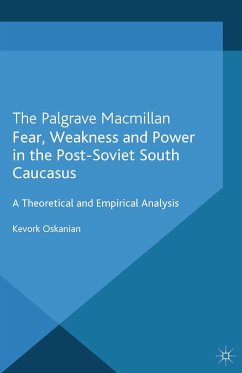
The Gamble of War
Is It Possible to Justify Preventive War?

PAYBACK Punkte
19 °P sammeln!
This book analyzes the justification of preventive war in contemporary asymmetrical international relations. It focuses on the most crucial aspect of prevention: uncertainty. It builds a new framework where the role of luck-whether military, political, moral, or normative-is a corrective to the traditional approaches of the just war tradition.












